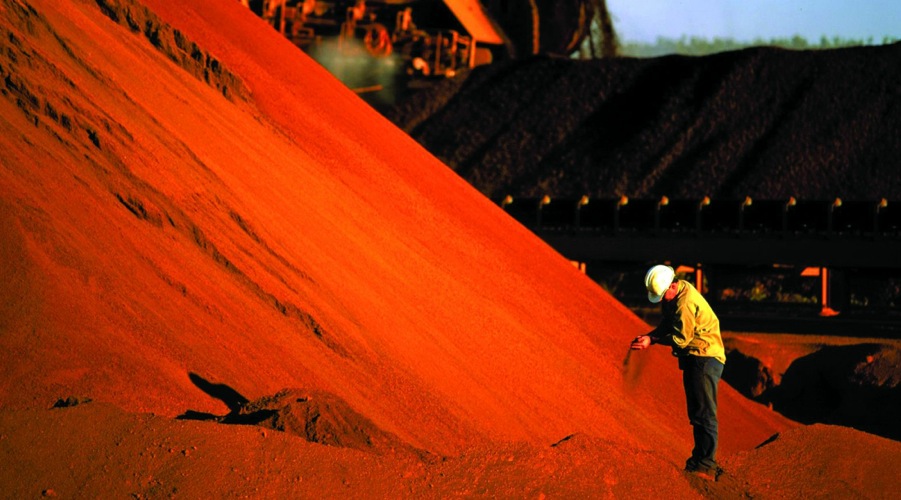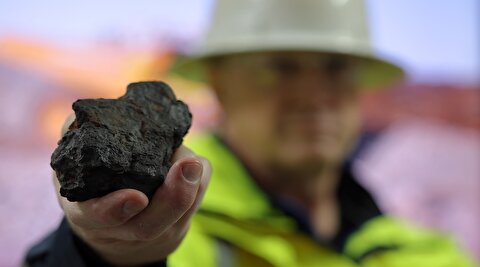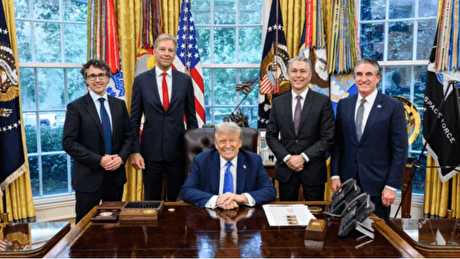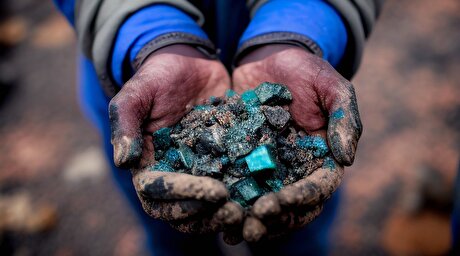
Rio Tinto dodges emissions cut, but issue unlikely to go away

Investors have been pushing for corporate giants to cut back their emissions as part of a wider drive to combat global warming outlined in the Paris climate accord.
Rio Tinto, which makes around 85% of its profits from sales of iron ore, has come under increasing pressure given its huge exposure to the steel industry, one of the world’s heaviest polluters.
About 63% of shareholders in Australia voted against the resolution calling on Rio Tinto to set targets for its customers, called scope three emissions, while the other 37% voted in favour. The resolution was proposed by Friends of the Earth unit Market Forces and other investors.
RELATED: Rio Tinto’s top investors face off over emissions cut plan
“It is extremely problematic for the mining industry to set targets for the steel industry,” Rio Chairman Simon Thompson said.
“What Market Forces is asking us to do is set measures for a process we do not control and where we cannot even measure the starting point, nevermind any improvement.”
A similar climate change-related resolution failed at BHP Group , the world’s largest listed miner.
Rio late last year set targets to reach zero emissions by 2050, to cut emissions intensity by 30% and absolute emissions by 15% by 2030.
BHP and Brazilian miner Vale have also pledged to set scope three goals. One way for Rio to cut emissions would be to close its Australian aluminium operations that are fuelled by coal-fired power after it put the loss-making business under review last year.
Rio Tinto is still in discussions with state and federal governments as well as power utilities to find a “commercial solution”.
“If we were at this stage to take more rapid unilateral action to reduce emissions, it would require the closure of some of our operations,” Thompson said.
Rio promotes itself as the only major miner that does not produce carbon since it sold off its coal assets, but it also drew criticism over plans to build a $1 billion coal-fired power plant in Mongolia, to support its copper mine.
The new power plant, which it is required to build under its investment agreement with the Mongolian government, would be more efficient than buying coal-fuelled power from Chinese plants as it does now, Thompson said.
Thompson also refuted calls for Rio Tinto to quit the Minerals Council of Australia (MCA), despite acknowledging that MCA has sometimes advocated actions that have not always aligned with its climate policies.
Like BHP, Rio argues that change is easier from within. Thompson noted that MCA has since changed its processes, and has done good work promoting safety and coordinating the industry’s coronavirus response.


Barrick’s Reko Diq in line for $410M ADB backing

Trump weighs using $2 billion in CHIPS Act funding for critical minerals

Pan American locks in $2.1B takeover of MAG Silver

US adds copper, potash, silicon in critical minerals list shake-up

Trump raises stakes over Resolution Copper project with BHP, Rio Tinto CEOs at White House

Gold price gains 1% as Powell gives dovish signal

Gold boom drives rising costs for Aussie producers

Giustra-backed mining firm teams up with informal miners in Colombia

US seeks to stockpile cobalt for first time in decades

Kyrgyzstan kicks off underground gold mining at Kumtor

Kyrgyzstan kicks off underground gold mining at Kumtor

KoBold Metals granted lithium exploration rights in Congo

Freeport Indonesia to wrap up Gresik plant repairs by early September

Energy Fuels soars on Vulcan Elements partnership

Northern Dynasty sticks to proposal in battle to lift Pebble mine veto

Giustra-backed mining firm teams up with informal miners in Colombia

Critical Metals signs agreement to supply rare earth to US government-funded facility

China extends rare earth controls to imported material

Galan Lithium proceeds with $13M financing for Argentina project

Kyrgyzstan kicks off underground gold mining at Kumtor

Freeport Indonesia to wrap up Gresik plant repairs by early September

Energy Fuels soars on Vulcan Elements partnership

Northern Dynasty sticks to proposal in battle to lift Pebble mine veto

Giustra-backed mining firm teams up with informal miners in Colombia

Critical Metals signs agreement to supply rare earth to US government-funded facility

China extends rare earth controls to imported material

Galan Lithium proceeds with $13M financing for Argentina project

Silver price touches $39 as market weighs rate cut outlook

















